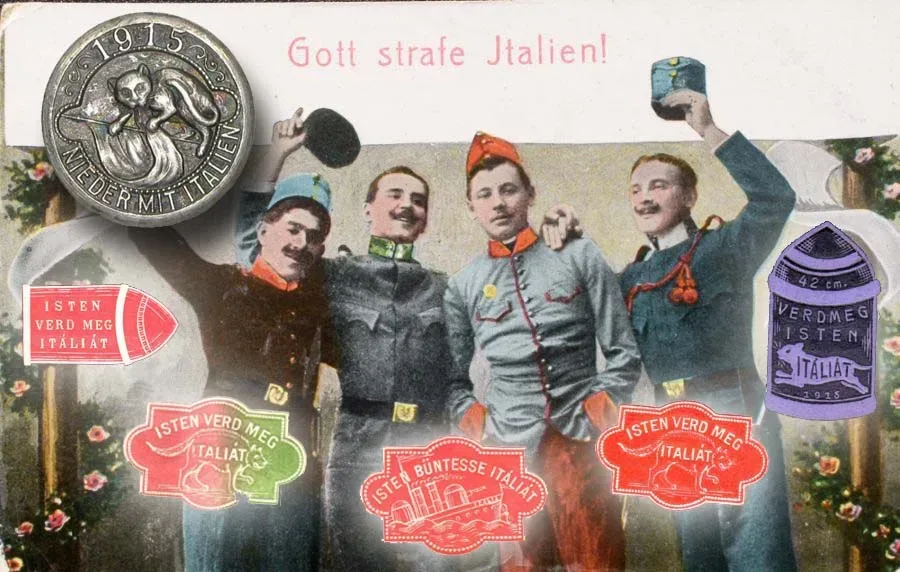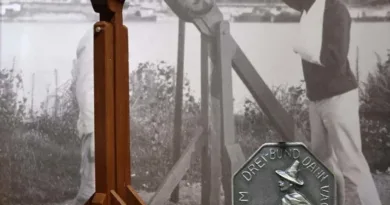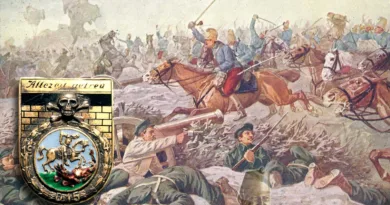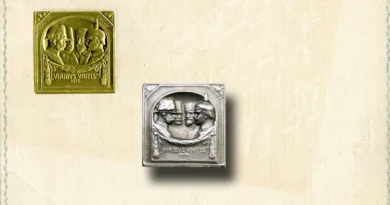The Italian cat
The early escalation of the Great War was triggered by the entry into war of some European countries in addition to the already involved Central Powers and the Entente. First Turkey entered on the Central Powers side, then Italy entered with the entente. This was followed by the entry of Bulgaria and then Romania. Italy’s entry was particularly unfavorable for the Monarchy, as Italy grew up to be a middle power after its unification in the 1860s. His economic and military strength was a serious threat. The Italians changed the allies. In the Triple Alliance, they committed to Germany and the Monarchy. After settling their territorial dispute with France, however, they turned against their former allies.
Against the treacherous Italy, it did not take a particularly great effort to get the crowds up. The betrayal caused public outrage. Everyone saw it as the Monarchy’s duty to teach the Italians a lesson. Accordingly, war propaganda has maintained emotions against Italians by a wide range of means. We are now going to introduce some of these with the help of my friend Gábor Csiszér. According to the profile of the site, a Kappenabzeichen follows first. This depicts Italy as a cat. The ugly-shaped animal is lying behind the Italian flag on the ground.

Letter-sealers like the ones on the entry picture were also prepared. In today’s electronic world, when stationery is almost unknown, this little stamp-like object needs to be explained. They were taped to the envelope. They were used for decoration rather than for closing the envelope. As you can see, they are no real stamps, there are no value marks on them. But like stamps, the adhesive surface on the back could be glued to the envelopes by wetting them.

On three letter-sealers, the Italian cat sneaks in, and the fourth shows a sinking Italian warship. The shape of two imitates the monarchy’s high-caliber mortar ammunition. I put the letter-sealers on a special card. The interesting thing about the post card is the written back. On October 24, 1918, the Italians launched their major offensive. This eventually swept away the Monarchy’s south-west front and ultimately led to the collapse. Two days after the attack started, lieutenant Szili wrote from the Italian front to Micike Hajdú: „Here, everything is calm. We wait with patience for the Italians”. He’s hoping to go home again in two or three months. Presumably he didn’t have to wait that long. But the country he returned to wasn’t the same as the country he left for the front.





